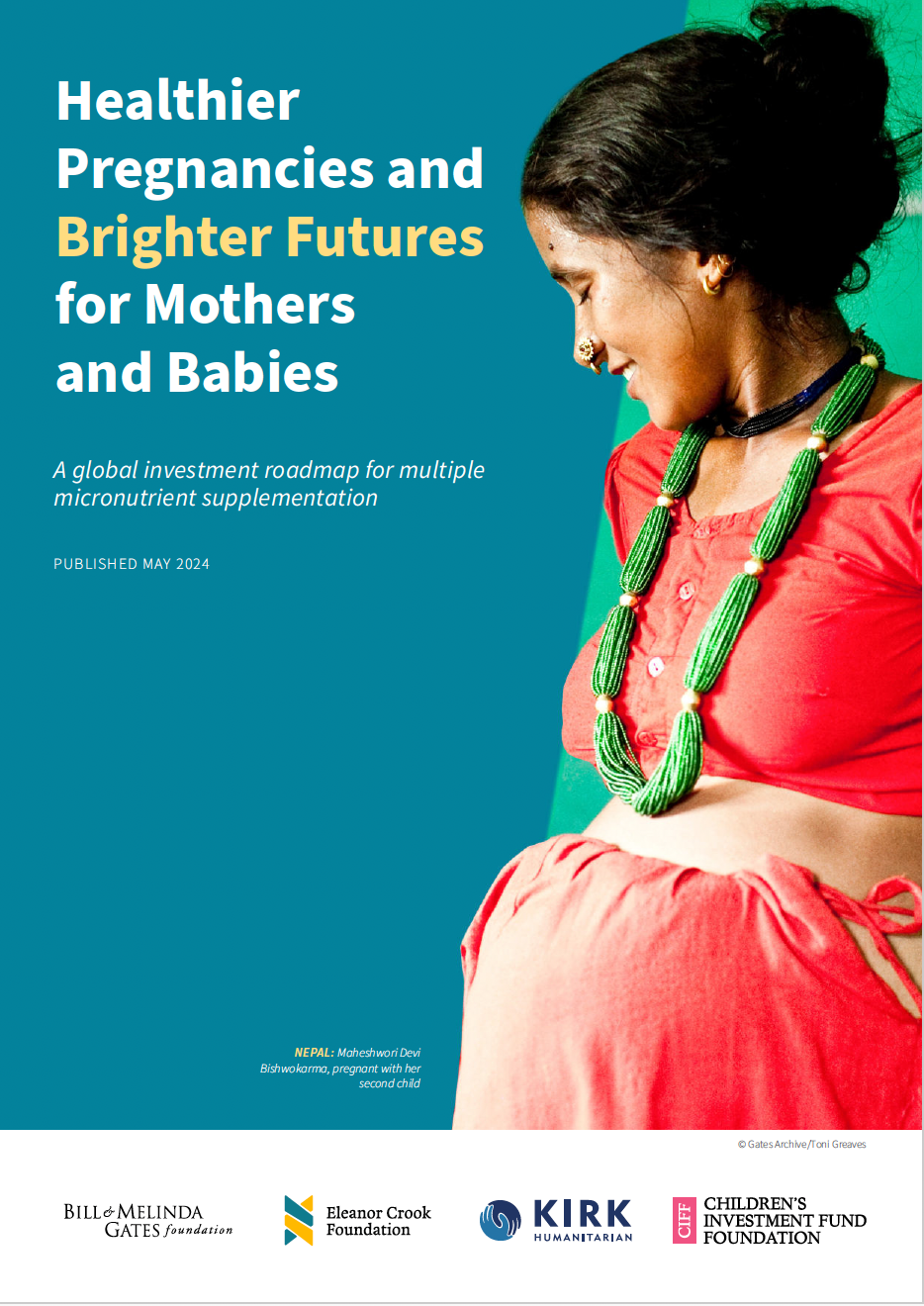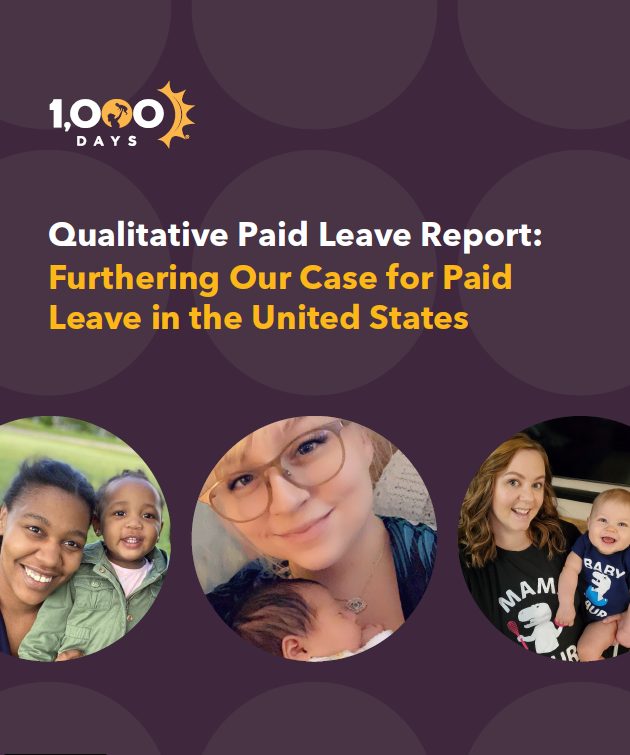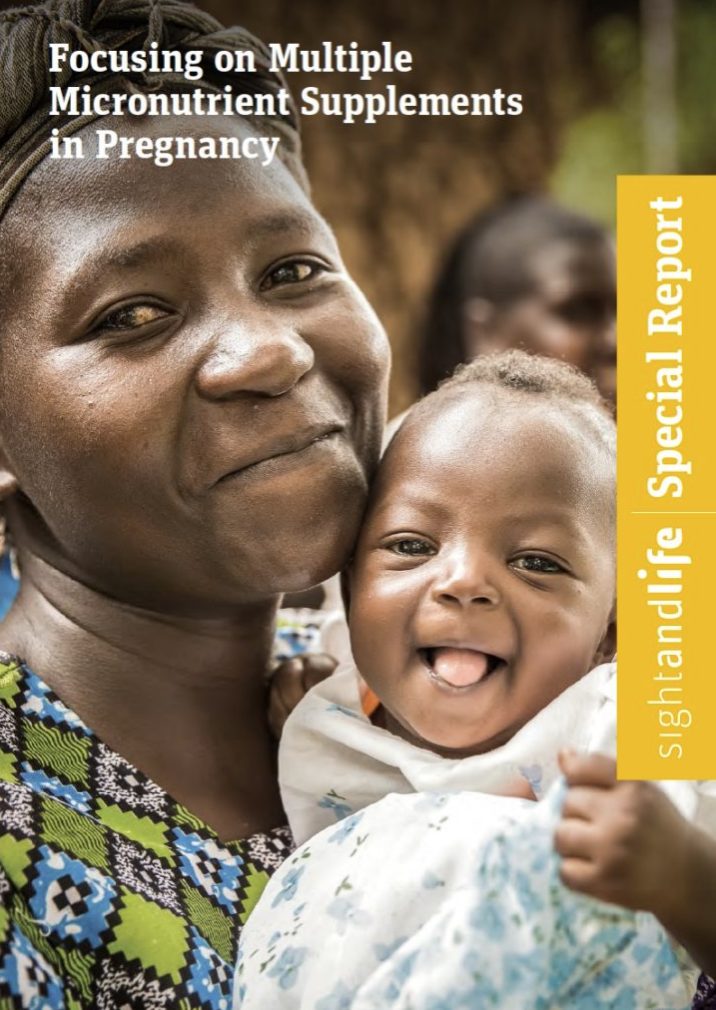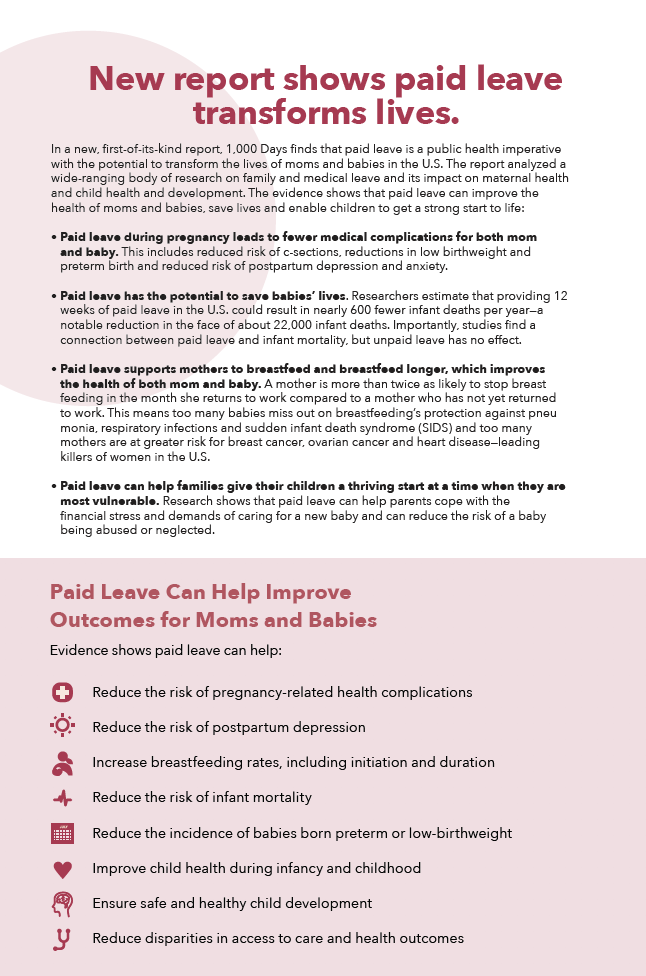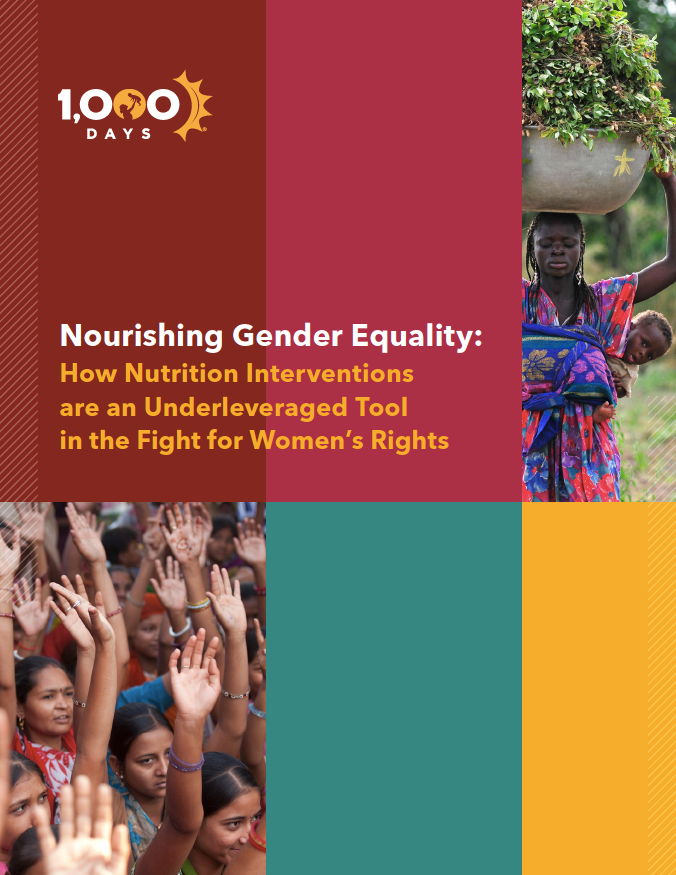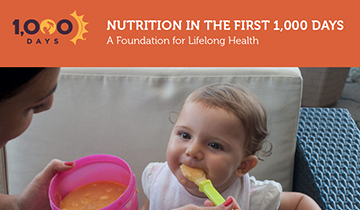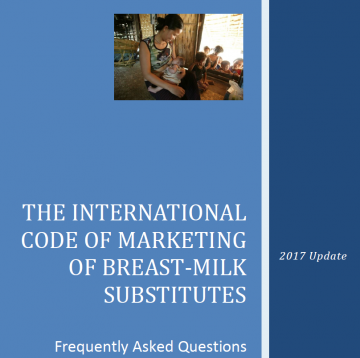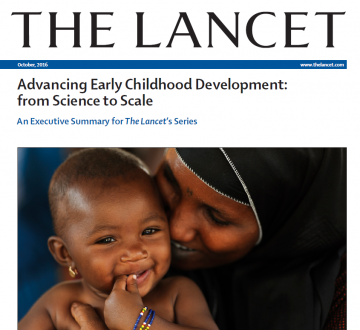Healthier Pregnancies and Brighter Futures for Mothers and Babies: A global investment roadmap for
A collaborative of private philanthropies (the Bill & Melinda Gates Foundation, Children’s Investment Fund Foundation, Eleanor Crook Foundation and Kirk Humanitarian) released a global investment roadmap designed to catalyze and prioritize action and investment in multiple micronutrient supplements (MMS). The roadmap presents an opportunity to reach at least 260 million women in 45 countries with MMS by the end of 2030, an ambition that would deliver profound health impacts for mothers and babies. The plan would save more than 600,000 lives, improve birth outcomes for more than 5 million babies, and prevent anemia in over 15 million pregnant women. At a cost of just over $4 per pregnancy (a total cost of $1.1 billion over seven years – $720 million from donors and the remainder coming from domestic resources), the roadmap would translate to monumental health gains while directing coordinated efforts to strengthen and improve health systems and antenatal care services in parallel.

